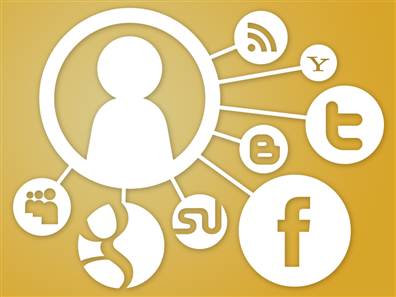
Gary LosHuertos parked himself in a New York City cafe last fall and fired up(发动) a new tool for snooping(窥视,探听) on people as they use free wireless. Within minutes, he had managed to spy on more than a dozen people as they used Facebook. It was just an experiment by the Web software expert, but he wanted to make a point — so he used the victims' own Facebook accounts to send them each an unnerving(使人气馁的) warning message. He told them he'd hacked their accounts, and he knew where they were.
He expected cursing, anger, perhaps some furious typing. Instead, many of his recipients(收件人) just went right on surfing. So he prodded(刺激) them a second time.
"Really wasn't kidding about the insecurity thing," he wrote. "I won't send another message after this — it's up to you to take your security seriously. You're at the [XYZ Street] Starbucks on an insecure connection, and absolutely anyone here can access your account with the right (free) tool."
Twenty minutes passed. He could see that recipients had read his notes — he had full access to their accounts. But on they went, surfing as if no one was watching. One even shopped at Amazon, despite his specific warning about that site.
Even his incredibly spooky(怪异的) message didn't change their behavior.
"What's absolutely incomprehensible(难以理解的) is that after someone has been alerted(提醒) to the danger (from their own account!) that they would casually ignore the warning, and continue about their day," said LosHuertos in his blog about the incident.
Welcome to the world of privacy experts like Larry Ponemon and Alessandro Acquisti. Their chosen field of work is an area where research can be pretty depressing. Consumer behavior shows, repeatedly, that people just don't care about privacy, no matter how much lip service(好听的空话) they might give to the topic. Ponemon's research shows that most U.S. adults — 60 percent —claim they care about privacy but will barely lift a finger in an effort to preserve it. They don't alter Facebook privacy settings, they don't complain when supermarkets demand their phone numbers and they certainly don't insist on encrypted(加密的) e-mail. LosHuertos' experiment underscores(强调) this point well. Even people who have experienced a "privacy mugging" often don't change their behavior.
While Congress and the Federal Trade Commission mull(深思) over the first real federal effort to protect Americans' privacy in the digital age, msnbc.com is trying to kick-start the conversation and draw attention to the prickly(棘手的) topic. In this series, Wilson Rothman is speaking to the crowd that deliberately doesn't care about privacy ; Helen Popkin, to that small group of privacy elites who go to some trouble to avoid sharing information with government agencies and corporations. I'm starting off the third piece by addressing the largest group, the people in the middle who say they care, but contradict(与……矛盾) themselves daily with privacy-eroding choices.
Privacy policy in our country, and the fate of many corporations, will be decided by this big group in the middle — a group that includes nearly two out of every three U.S. adults — that Ponemon calls "privacy neutral." The challenge that privacy advocates face — and frankly, I face while writing this article — is to convince these middle-of-the-roaders that privacy matters, and they really should do at least the bare minimum to keep themselves safe and preserve this basic human right before it's too late.

